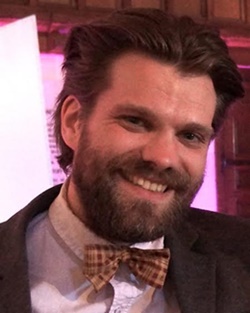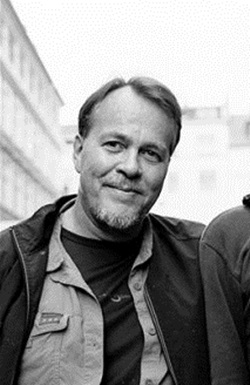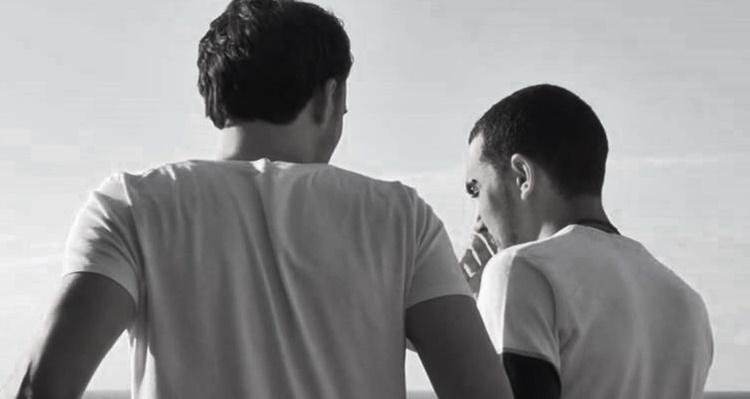The president of Samtökin ‘78, The National Queer Organization in Iceland welcomes the chair of the Association of Muslims in Iceland attitude towards gay marriages. He says the two group face similar adversity in their fights and hopes to establish good contact with the Muslim congregations.
“I am delighted that this is his opinion,” says Hilmar Hildarson Magnúsarson, president of Samtökin ‘78, The National Queer Organization in Iceland. Refering to an interview last week with Ibrahim Sverrir Agnarsson, the chair of the Association of Muslims in Iceland who said that if asked he would assist gay Muslims couples to marry.

He agrees with Ibrahim Sverrir on there being some similarities between the status of Muslims and queer people in Iceland. “I am not a member of the Association of Muslims in Iceland but we have through the years found similarities between our fight and theirs, and also that of African-Americans in the United States or women’s liberation, for that matter. Many things unite groups that face adversity and I believe there are, without a doubt many similarities in experience.”
For example Hilmar sees likeness in comments made on the internet about queers, Muslims and other minority groups. Comments which he believes to be more visible now than ever before. “The likeness is of course there. You can still find very fierce comments about queer people on the internet today and we targeted this on Reykjavik Pride last year by having signs with „best off“ quotes, or so to speak, from comments off the internet.”
He says that these kind of comments are quite often horrid, more than hurtful, they are criminal. “Sometimes they are about Jews, sometimes about queer people and sometimes about Muslims. I find the likeness between them so striking that it’s like a standardised text with holes for nouns to be inserted at will. Sort of ‘insert word for group you dislike’ comments. I know from personal experience that you have to distance yourself from these brutal comments. Sometimes you can’t read them but sometimes you have to as they too are part of the discussion.”
…these kind of comments are quite often horrid, more than hurtful, they are criminal. “Sometimes they are about Jews, sometimes about queer people and sometimes about Muslims.”
But there is a difference he says. “Our cause enjoys much more support today than it did in the past. It is probably not very clever politics nowadays to be against queer people.” Adding though that there will always be politicians who will try to get votes from hostility and negative feelings towards minority groups. He believes foreigners, including queer foreigners can be targeted by such politicians. “Simply because these people usually have a weaker social status and a smaller network of friends and it is much easier to marginalize people you don’t know anything about.”
When asked how the National Queer Organization would react if a gay Muslim sought assistance Hilmar says that everyone is met on an individual basis, their challenges and the problems they face. “For that we have consultation. We don’t judge people. Our target group is queer people and that means of course that all queer people are welcome.”
But are there any Muslims belonging to the National Queer Organization? “We don’t distinguish people on grounds of religion. We are aiming for an informal group for immigrants and foreigners and thus we try to welcome homosexual, bisexual, intersexual and transgender people who are not born in Iceland to join Icelandic society.”
Hilmar explains that there are in fact two groups working with in The National Queer Organization. One is composed of foreign nationals, people who have moved to Iceland, including those who have gained Icelandic citizenship. “The other group we want to reach out to are asylum seekers and refugees. In both groups we are talking about people coming from all over the world, with different backgrounds, different nationalities, religion and so on.” So even though the two groups have some similarities they have very different needs.

According to him the groups are also a clear example of how the organization’s focus has widened in recent years. “Now we also focus on disparity within the queer community, for example being a foreigner in Iceland, being disable and so on. We increasingly concentrate on variables that influence social status and among that is being a foreigner, not born in Iceland but living here.” He names an example. “I know gay people of Arabian origin living in Iceland who have been met with antipathy because of it. People find themselves belonging to many minority groups at the same time and this can cause problems.”
Going back to Ibrahim Sverrir’s comments Hilmar says the National Queer Organization wants to have more and deeper discussions on queer culture and religion, on how queers fit within religion and vice versa. “Just as Ibrahim Sverrir mentioned last week, there are liberal mosques who rejoice queers. In Iceland, Fríkirkjan – The Free Church in Reykjavik amongst others has done the same. This is a very interesting debate and I think it has never been as fitting as now.
Through the years at the National Queer Organization has been in good contact with many people of faith, Christian ministers and congregations and I hope to establish the same with the Muslim congregations. Our position is that we are here to build bridges, increase understanding and respect.”


